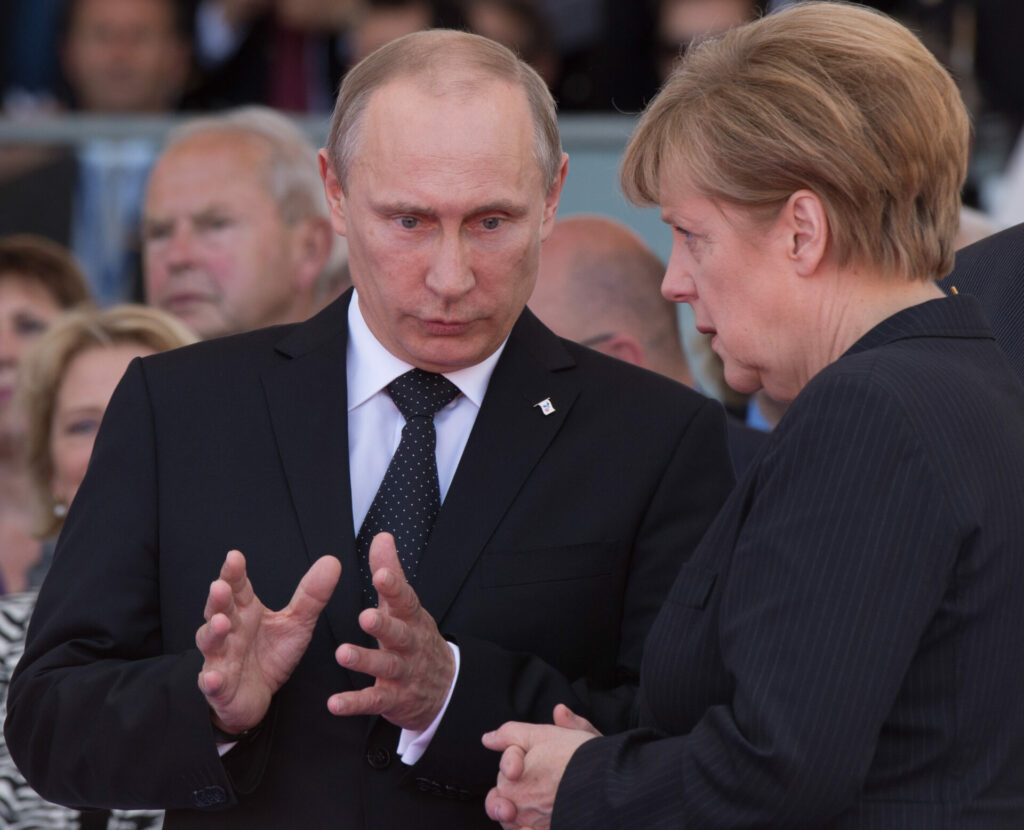Former German Chancellor Angela Merkel has suggested that she "didn't have the power" to influence Russian President Vladimir Putin — and, in particular, to dissuade him from invading Ukraine — during her final months in office.
In an interview with Der Spiegel magazine, Merkel claimed that, on her final visit to Moscow in August 2021, she was effectively ignored by Putin, who knew that she would soon be leaving office.
"Everyone knew that I was leaving in autumn," she said. "The feeling was very clear: 'In terms of power politics, you're through.' For Putin, only power counts."
Merkel, who was in office for 16 years, was succeeded by Olaf Scholz as German Chancellor in December last year. Russia launched its full-scale invasion two months later, on 24 February.
Success or failure?
During her 16 years in office, Merkel had a functional, if occasionally fractious, relationship with Putin. Plausibly, their rapport was undergirded by their overlapping life experiences: Putin, who speaks fluent German, had spent time as a KGB officer in East Germany, where Merkel, who speaks passable Russian, had grown up.
Merkel's approach towards Russia is widely regarded as a continuation of former West German Chancellor Helmut Kohl's policy of "Ostpolitik", or the normalisation of relations between East and West, and especially Kohl's doctrine of "Wandel durch Handel", or "change through trade".
In particular, one of Merkel's signature — and most controversial — policies was to render the Germany economy heavily reliant on cheap Russian energy: by 2020, Germany was importing more than half its natural gas, half of its coal, and a third of its oil from Russia.
Following Russia's invasion, Merkel's energy programme was criticised by Scholz, who suggested that Germany had "relied too long and too unilaterally on energy supplies from Russia". Merkel has since vigorously defended her administration's approach, claiming that she "absolutely do[es] not regret the decisions taken".
Related News
- Merkel hits back at accusations of Russia appeasement
- Merkel has no regrets regarding her energy policy towards Russia
Besides her signature energy policy, Merkel made a concerted effort to normalise political relations with Russia while in power.
In addition to blocking the provision of a NATO Membership Action Plan to Ukraine at the 2008 NATO Bucharest Summit — a decision which has since been openly criticised by current Ukrainian President Volodymyr Zelenskyy — Merkel was influential in persuading Ukraine to sign the Minsk Accords: an agreement which, if implemented, would have ended the country's eight-year civil war by effectively blocking Ukraine's future accession to NATO.
Ukrainian officials have since claimed that they were heavily coerced, if not openly blackmailed, into signing the Minsk agreements. On the eve of Russia's invasion, Oleksiy Danilov, the Secretary of the Ukrainian National Security and Defence Council, claimed that the agreements "were signed under the barrel of Russian guns — and the Germans and the French were watching".

